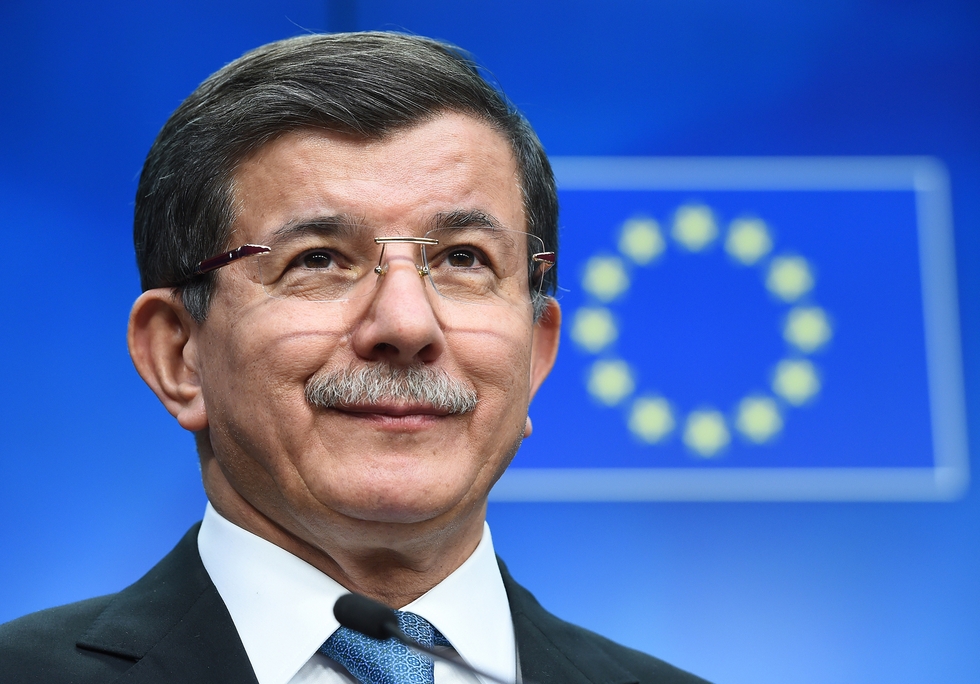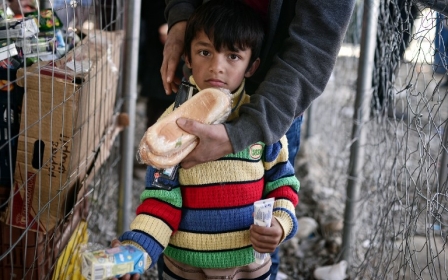Arabic press roundup: Turkey and the EU

The Turkey-EU negotiations got into full swing today, giving Arabic and Turkish media ample ground to cover, including press freedom in Turkey, and how to solve the migration crisis.
Anadolu news agency
The Arabic language version of the Turkish agency reported that the Turkish government was negotiating a tough deal with the Europeans. The agency reported that the “Turkish PM Ahmet Davutoglu, has suggested that the EU exempt Turkish nationals from Shengen visas and pay a total of 6bn euros so his country can cope with the Syrian refugees.” Anadolu also added that Turkey was demanding to include its EU membership within the talks. However, this position was opposed by speaker of the European Parliament, Martin Shultz, who argued that these were totally separate matters.
An-Nahar
The difficult Turkish-EU negotiation has been top news for many Arabic news outlets which highlighted the European divisions and “critical need” for any agreement to block further migrants. The Lebanese An-Nahar media outlet argued that, “The summit is extended as Turkey presents new proposals…Europeans are divided about the closure of the Balkan borders with Greece to stop migrants flow…they are pushing for an agreement with Turkey to stop the flow and return some refugees.” It also reported earlier that Holland's prime minister vowed to return all non-Syrian refugees to Turkey.
Al-Ghad
Jordan's Al-Ghad covered the summit from different perspectives and gave importance to the German stance of Chancellor Angela Merkel, who said the EU needed "to reach an agreement with Turkey”. Al-Ghad also suggested that the European Union was exerting pressure on Turkey and Greece.
Al-Youm7
The Turkish position on the refugee crisis and the negotiations with the EU was "an appropriate news story" for some Arab media outlets to attack Turkey. For instance, Egyptian Newspaper Alyoum7, which is close to the Egyptian establishment, did not spare a chance in attacking Turkey. While the paper described the talks as difficult, it concluded that, “the talks between the two parties come amid European concern over the suppression of opposition media outlets by Turkish government.” The paper also highlighted the position of the president of the Czech Republic Milos Zeman, who opposes offering Turkey financial aid in order to cope with the refugee crisis.
Al-Wafd
Egypt's Al-Wafd attacked the Turkish position on refugees and provided a platform to former ambassador to Russia, Dr Ezzat Saad, who stated that: "Turkey is attempting to win people's sympathy by exploiting the issue of refugees." The former ambassador also claimed that Turkey was seeking to settle refugees on its soil in return of 3bn euros.
Alalam Arabic News
Alalam Arabic news network, known for its promotion of Iranian foreign policy in the Middle East, joined Egyptian media and adopted identical positions. The networked published an article entitled, "Pay first...Turkey blackmails Europe over refugees." The network added that the "refugee card" was being used by Turkey to achieve gains such as blackmailing the EU over its membership, and obtaining EU money. Back in February, it ran a similar article where Bothaina Shaban, senior consultant for Syrian President, Bashar al-Assad, stated: "Turkey invented the refugee crisis to blackmail Europe."
Middle East Online
The Middle East Online website, an Emirates news outlet, also argued that, "European fear of refugee crisis is boosting Turkish opportunism". It stated Europe was silent on the suppression of freedoms in Turkey due to the issue of refugees. It also published a statement from Selahattin Demirtas, co-leader of the left-wing pro-Kurdish Peoples' Democratic Party, who said Europe was turning a blind eye to the human rights violations of the Turkish government due to the refugee crisis.
Stay informed with MEE's newsletters
Sign up to get the latest alerts, insights and analysis, starting with Turkey Unpacked
Middle East Eye delivers independent and unrivalled coverage and analysis of the Middle East, North Africa and beyond. To learn more about republishing this content and the associated fees, please fill out this form. More about MEE can be found here.




